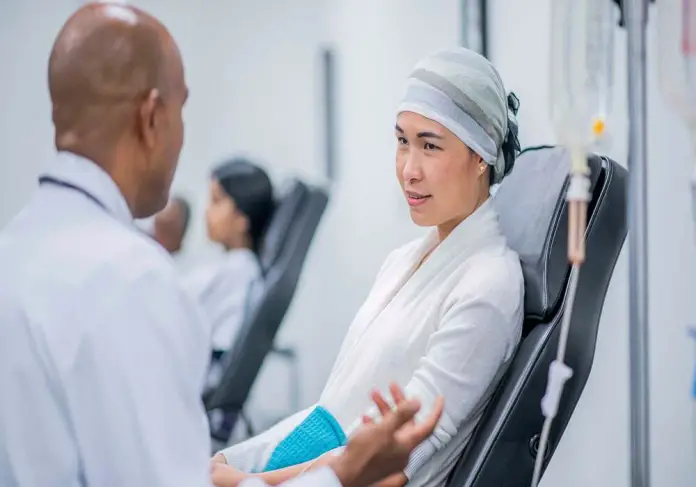A terminally ill patient, who doctors thought would succumb to his disease, found himself free of aggressive throat cancer after he took part in a successful immunosuppressant-based trial treatment in the United Kingdom (UK).
According to the Guardian, 77-year-old Barry Ambrose received a life-changing call when nurses told him he was cured of cancer after eight weeks of partaking in a cancer treatment trial.
The trial was conducted by researchers at the Institute of Cancer Research (ICR) in London, in collaboration with the Royal Marsden National Health Service (NHS) foundation trust. The treatment plan taps into a patient’s immune system, which kills cancer cells and enhances chances for survival.
Patients are administered a mixture of two immunotherapy drugs, namely nivolumab and ipilimumab, which have proved effective against advanced head and neck cancers. While the cancers significantly reduced for some, in other cases like Ambrose’s, the cancer was destroyed altogether.
The ICR researchers told the Guardian that the trial’s phase three included 1000 terminally ill head and neck cancer patients, which although a small pool of candidates, still delivered promising results. ICR Chief Executive Kristian Helin said that the novel course of treatment was ‘kinder’ and ‘smarter’ to patients due to its minimal side effects.
Ambrose was a case in point. An adventure seeker, Ambrose said he was able to pursue activities such as sailing and cycling with ease. The same could not be said for chemotherapy, which has usually brought about debilitating side effects for most cancer patients. Ambrose said the treatment allowed him to live life normally, even giving him a chance to go on a cruise with his wife, Sue.
The trials results demonstrated that the immunotherapy cocktail had a high survival rate in people with tumours that had high levels of an immune marker called PD-L1. On average, patients with high PD-L1 levels lived three months longer than those who received chemotherapy.
While the trial named ‘CheckMate 651’ has signaled hope for close to 12,000 people who are diagnosed with aggressive head and neck cancers each year in the UK, ICR researchers have said a deeper dive into the research was needed.
ICR biological cancer therapies professor and consultant clinical oncologist at the Royal Marsden, Kevin Harrington said that the results were ‘clinically meaningful’, if not ‘statistically significant’. Harrington added that further follow-up was required to determine the full efficacy of the trial across patients.







